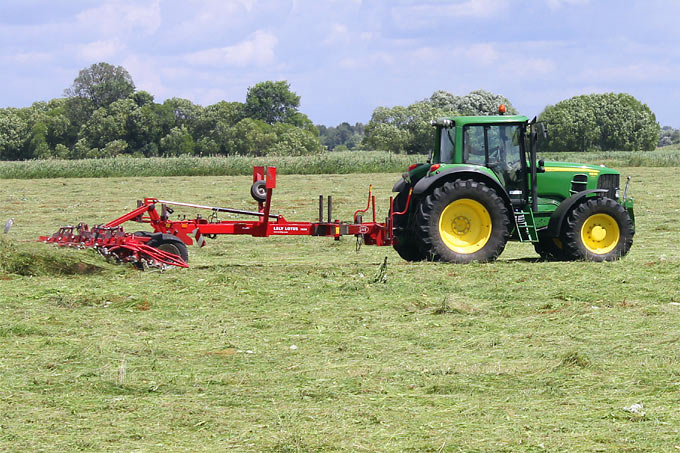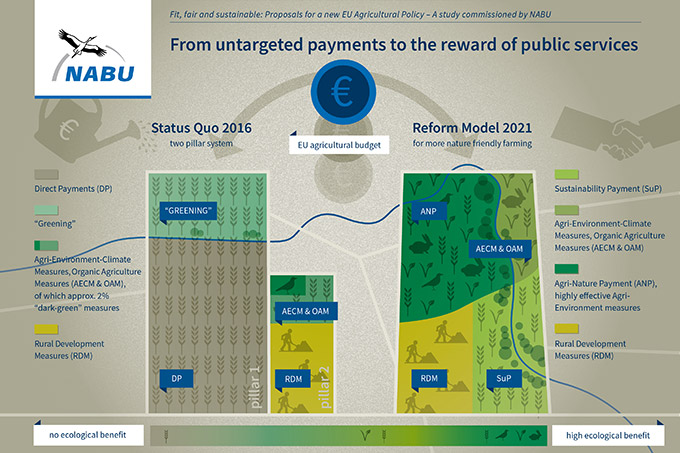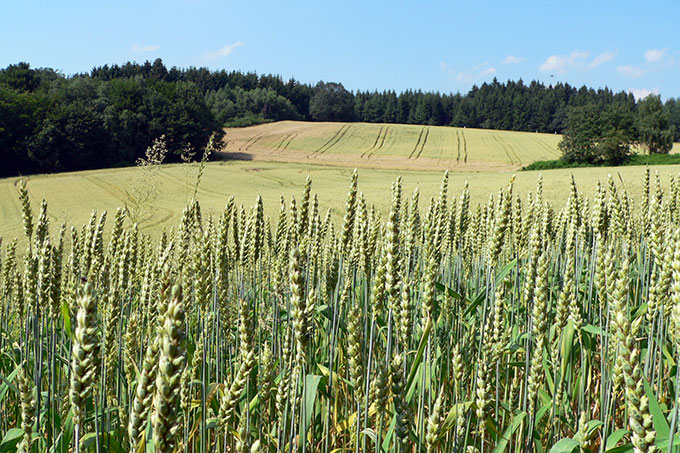CAP 2021: "Fit, fair and sustainable"
The EU’s Common Agricultural Policy needs a drastic reform

Photo: Helge May
Intensification of land use, factory farming, increasing use of pesticides and over-fertilization has led to massive problems for biodiversity and habitats, as well as to damage to water, soil and climate. The CAP has a great responsibility for this development.
Currently about 40 percent of the EU budget, annually around 60 billion EUR, are spent on agriculture. This public support is mainly organised as untargeted area-based payments – without specific goods and services provided by the recipients in return. NABU thinks this approach is counterproductive and inefficient: in its current form the CAP is equipped neither to address the unprofitability of small-scale farming, nor to meet the challenges of climate change and biodiversity loss. On the contrary, while not offering sufficient incentives for environmentally sound land use it promotes increasingly intensive use of agricultural land.
NABU has commissioned a study carried out by agroeconomists and agroecologists who developed a new model for agricultural payments that would meet the needs of both sustainably operating farmers and nature conservation. The study was launched at two events in November 2016 in Berlin and Brussels.
Stronger incentives for ecologically sound land use
The new model is based on much higher payments to those farmers who manage their land in a sustainable way and who implement specific measures for biodiversity. Holdings that choose only to meet the basic legal requirements would no longer receive public money. The authors of the study have calculated that if the CAP budget for Germany remains the same, all farmers who manage areas of high ecological value areas on at least 20% (in the case of grassland) and 10% (in the case of arable land) would receive the same or a better income compared to today. The study expects that with this model about 75% of Germany’s agricultural land would be managed in a nature-friendly way – with higher or equal incomes for the participating farmers.
Such a reform could make the CAP not only more compatible with the EU’s environmental objectives but also far fairer towards farmers and taxpayers.
Read more:


